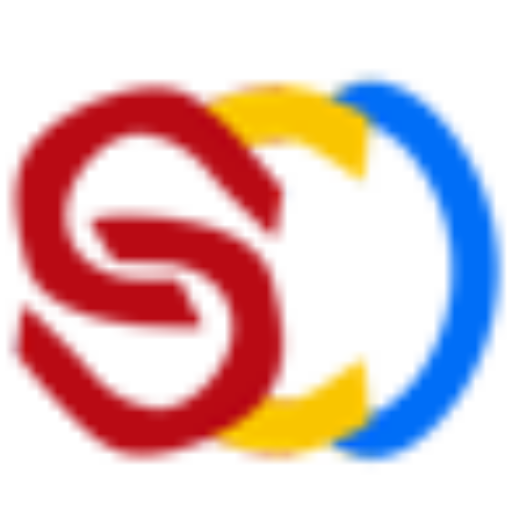How Health Courses Online Can Land You Jobs You’ve Never Heard Of
When people think about healthcare careers, the same big names come up: doctors, nurses, maybe physical therapists. But here’s the thing—healthcare is much, much bigger than that. Behind every hospital, clinic, and telehealth app are dozens of lesser-known roles keeping the system moving. And the surprising part? You don’t always need years in med school to get started.
Thanks to the explosion of health online courses, a lot of these hidden careers are now more accessible than ever. With just a laptop, some dedication, and the right certificate, you could step into a role that’s stable, meaningful, and sometimes even remote-friendly. Let’s take a look at some of these overlooked opportunities—and how an online class might be your ticket in.

1. Medical Coding and Billing: The Language Translators of Healthcare
Doctors don’t spend hours turning diagnoses into insurance forms—that’s the job of medical coders and billers. They make sure every procedure, lab test, and diagnosis gets translated into a code that insurance companies recognize.
Online courses in medical coding (ICD-10, CPT, HCPCS) can prep you for certification in less than a year. With more clinics shifting to digital records, this role is booming. It’s not glamorous, but it’s detail-oriented work that pays well and can often be done from home.
Who it’s for: People who love organization, accuracy, and working behind the scenes.

2. Health Data Analyst: Turning Numbers Into Insights
Healthcare isn’t just about stethoscopes—it’s about spreadsheets too. Every hospital collects massive amounts of data, from patient outcomes to staff efficiency. A health data analyst helps make sense of that information to improve care and cut costs.
Online courses in biostatistics, health informatics, and Excel/SQL can give you the foundation to land entry-level roles. Some programs even include projects using real patient data (anonymized, of course).
Who it’s for: Problem-solvers who enjoy finding patterns and making data useful.

3. Patient Advocate: The Human Side of Healthcare
Ever had to navigate confusing hospital bills or treatment plans? Imagine doing that for a living—except you’re helping patients instead of yourself. Patient advocates act as guides, ensuring people understand their options, rights, and paperwork.
Many online health courses now include patient advocacy certificates, focusing on healthcare law, ethics, and communication skills. It’s a growing field as healthcare gets more complex and patients need someone “on their side.”
Who it’s for: Empathetic communicators who want to help others but don’t want clinical work.

4. Telehealth Support Specialist: The New Front Desk
Since COVID, telehealth has exploded. Doctors need someone to help patients log in, troubleshoot tech issues, and even prep digital paperwork. That’s where telehealth support specialists come in.
Short online courses in telemedicine operations, HIPAA compliance, and basic IT can qualify you to work with hospitals, clinics, or health startups. Some positions are remote, so you can literally help patients from your living room.
Who it’s for: Tech-friendly helpers who like solving small problems quickly.

5. Community Health Worker: Bridging the Gap
Not every health job happens in hospitals. Community health workers (CHWs) go into neighborhoods to educate people on nutrition, screenings, vaccinations, and resources. Think of them as the friendly bridge between healthcare systems and everyday folks.
Many states now recognize online CHW certificate programs that train you in public health basics, cultural competency, and health education techniques. It’s grassroots, people-centered work that can be very rewarding.
Who it’s for: Outgoing, service-minded people who want to make a direct difference in communities.

6. Fitness and Wellness Coach (with a Twist)
Okay, “fitness coach” doesn’t sound hidden. But here’s the twist: a lot of online health courses now focus on specialized coaching niches—like diabetes fitness coaching, senior mobility training, or stress management through exercise.
These certifications go way beyond your typical gym trainer program. They mix health science + lifestyle coaching, making you a valuable resource for clients who need safe, tailored advice.
Who it’s for: Health enthusiasts who want to blend fitness with science-backed coaching.

7. Medical Interpreter: More Than Just Translation
Healthcare needs more than bilingual staff—it needs trained medical interpreters who can accurately explain complex medical terms between doctors and patients. A mistranslation here could literally affect someone’s life.
Online programs now exist to train interpreters in medical terminology, ethics, and cultural sensitivity. Demand is especially high in multilingual communities.
Who it’s for: Fluent speakers of another language who want a flexible, meaningful role.
Why These Jobs Matter (and Why Online Courses Work)
Healthcare is one of the fastest-growing industries worldwide. But not everyone wants—or can afford—to commit to a decade of schooling. Online health courses open doors to practical, career-ready skills that hospitals, clinics, insurers, and startups desperately need.
The best part? Many of these courses are short (some just a few months), affordable compared to traditional college, and designed to fit around your schedule. For someone testing the waters of a new career—or adding skills to their current job—it’s a low-risk, high-reward move.
Final Thoughts: Your Hidden Career Might Be One Click Away
If you’ve always been curious about working in healthcare but thought it was out of reach, now’s the time to look again. Whether it’s coding medical records, guiding patients, analyzing data, or supporting telehealth, online courses are breaking down barriers.
These aren’t “second-rate” jobs—they’re essential gears in the healthcare machine, often offering stability, good pay, and personal satisfaction. And who knows? One online course today might just be the start of a career you never even knew existed yesterday.
So, next time you’re scrolling past another “Introduction to Nutrition” ad, don’t dismiss it. That little course could be your launchpad into a whole new professional world.






